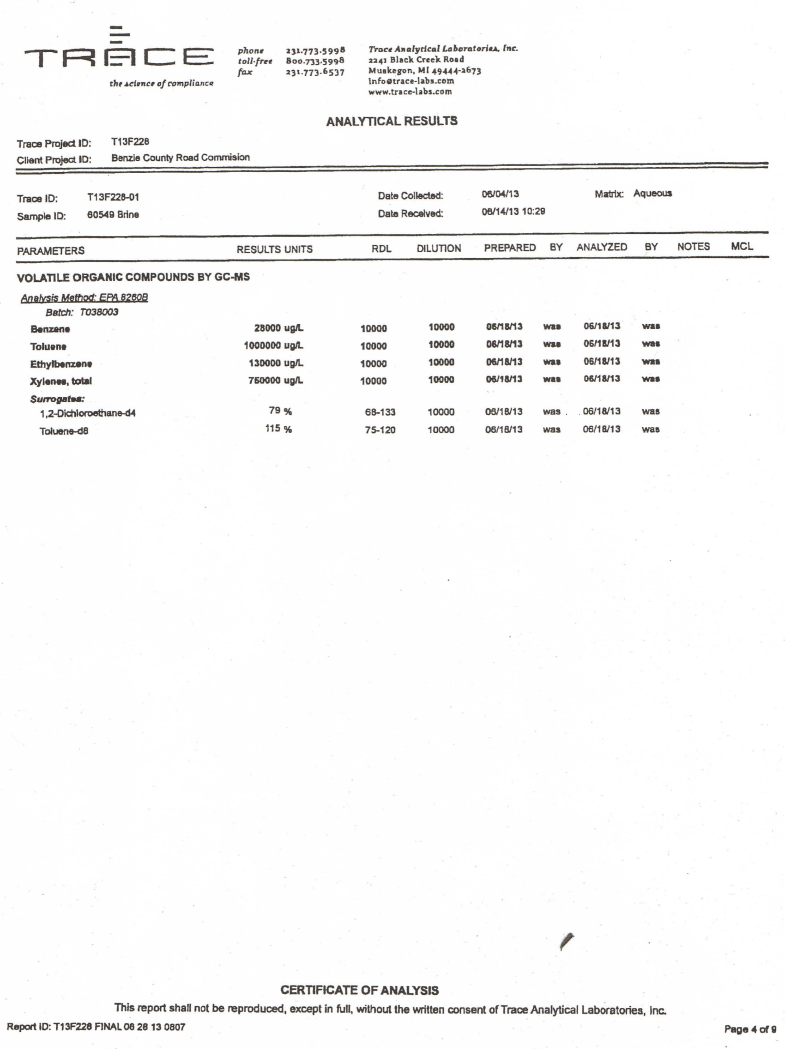Hmmm…where have I heard that company’s name before…?
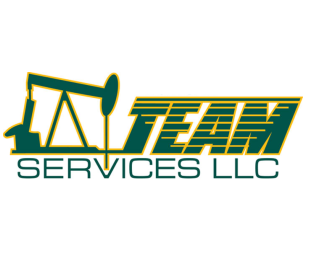 Team Services, LLC, self-described as “the leading provider of well services to the oil and gas industry throughout the United States”, has been caught spraying oilfield brines containing toxic solvents on unpaved roads in Benzie County. Brining is done for dust suppression. I was first alerted to this by Karla and Bryan Black while Anne and I were vacationing in nearby Leelanau County over the Independence Day holiday. The story has since been picked up by the Traverse City Record-Eagle who is on a roll this week. This the same paper that broke the story about the Pure Michigan campaign publishing their tourism guide out of Iowa, now a national story thanks to the Associated Press picking it up.
Team Services, LLC, self-described as “the leading provider of well services to the oil and gas industry throughout the United States”, has been caught spraying oilfield brines containing toxic solvents on unpaved roads in Benzie County. Brining is done for dust suppression. I was first alerted to this by Karla and Bryan Black while Anne and I were vacationing in nearby Leelanau County over the Independence Day holiday. The story has since been picked up by the Traverse City Record-Eagle who is on a roll this week. This the same paper that broke the story about the Pure Michigan campaign publishing their tourism guide out of Iowa, now a national story thanks to the Associated Press picking it up.
Karla wrote to tell me that, on June 4th, her husband Bryan was working on their organic farm that borders the Platte River Watershed, just south of the Village of Lake Ann. He noticed a Team Services oil tanker driving north on their road. Bryan could smell the unmistakable odor of petrochemicals and noticed an oily sheen on the road surface. In all, Bryan said, three tank loads were dispersed.
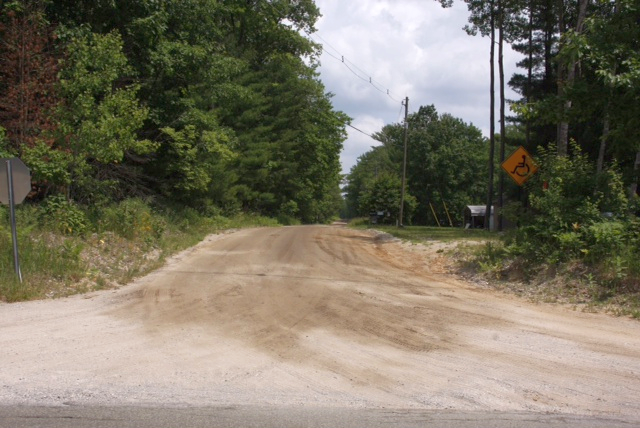
Road after brining, photo by Bryan Black
When Karla contacted the Benzie County Road Commission, they told her there was nothing to worry about but, just by coincidence, they happened to have taken a random sample and were sending it in for lab testing. Bryan knew what lab was doing the testing so the two drove over and gave the lab attendant a heads up, telling him they were concerned they might try to do a bait-and-switch with sample. After the lab attendant received the sample, he called to tell the Blacks that it “smelled so strongly and horrible, he didn’t dare light a match for fear the whole lab would blow up.”
As it turned out, the sample failed. Miserably. Here’s a copy of the lab report (click for a larger version):
The brine sample contained 28,000 parts per billion of benzene, a known human carcinogen; 1,000,000 parts per billion of toluene, a toxic aromatic solvent; 130,000 parts per billion of ethylbenzene, a toxic solvent; and 750,000 parts per billion of mixed xylenes, another class of toxic solvents.
The limits on all of these for brining fluids are 1,000 parts per billion (pdf). So they were 28X over the limit on carcinogenic benzene, 1,000 times over the limit for toluene, 130 times over the limit for ethylbenzene and 750 times over the limit for xylenes.
The Blacks are worried for good reason. The state of Michigan puts out a Guidelines document for the use of dust suppressants and it contains this helpful picture:
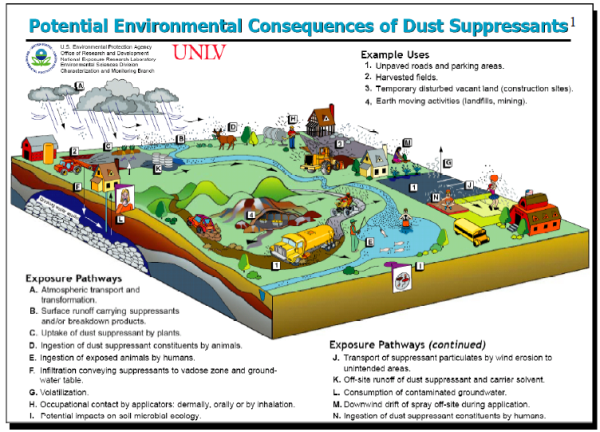
Notice the yellow truck brining the road. One of the potential environmental consequences is “surface runoff carrying suppressant and/or breakdown products” into waterways and aquifers. As it turns out, this truck was brining in the area of the Platte River Watershed through which the beautiful Platte River runs, an important ecological and recreational resource for northwestern Michigan.
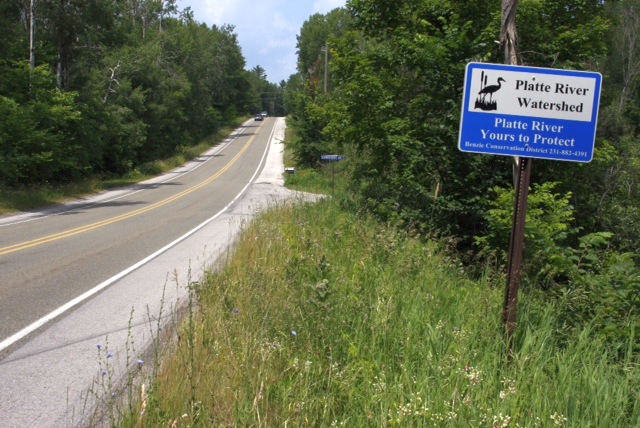
Photo by Bryan Black
If the name of the company that sprayed these chemicals sounds familiar, it’s because the same company sprayed over 40,000 gallons of waste fracking fluids on the roads of Kalkaska last year.
As a chemist, one of the big problems that I have with this gets back to the actual use of oilfield brines for dust suppression in the first place. They are only required to test them annually which is absurd and then they only test for four pollutants. There are a wide variety of other chemicals besides these four hydrocarbons that can be found in oilfield brines that could be entering our waterways and aquifers and we’d never know about it because we don’t test for them.
Benzie County officials assured the Blacks that this was a one-time event, the result of human error. But there’s no way to know that and, in fact, one of the Black’s neighbors has reported witnessing a brining tanker and smelling strong petrochemical odors since their incident.
As the Record-Leader article explains, there was once an effort to ban the practice of using oilfield brines on our public roads but it was shot down because counties save so much money. I’m all for saving money, but not at the expense of our health or our environment, including our precious water resources.
Something tells me there’s much more to this story. Stay tuned.


